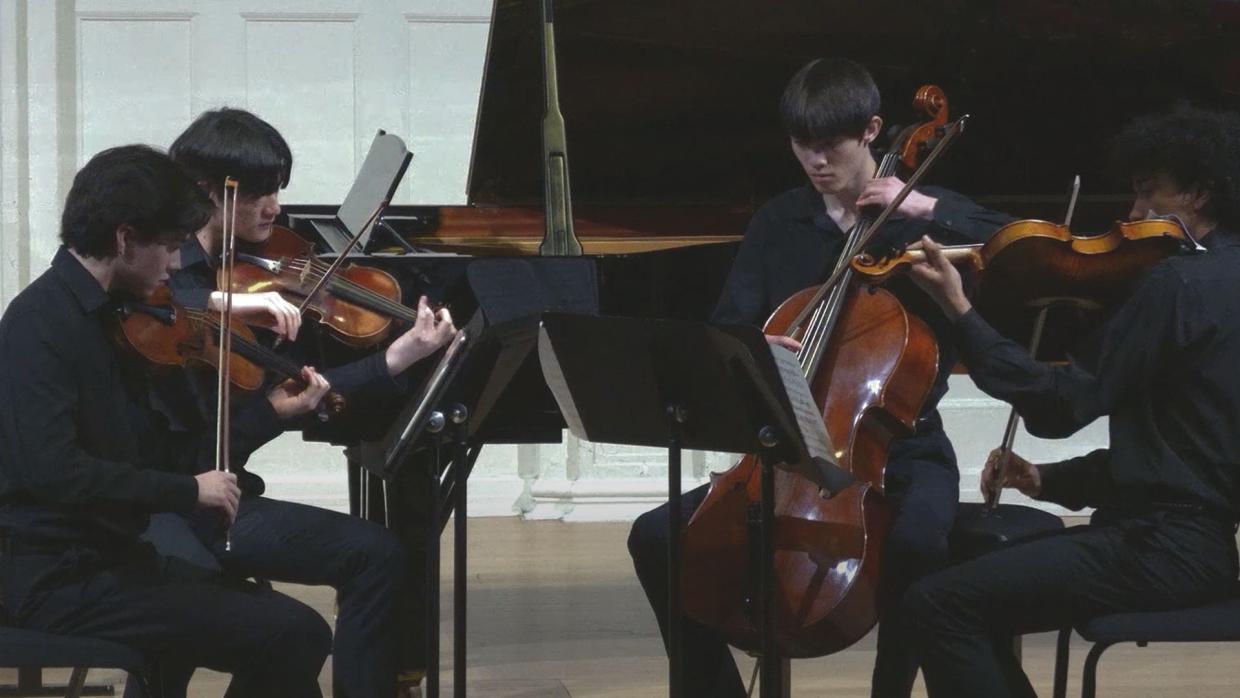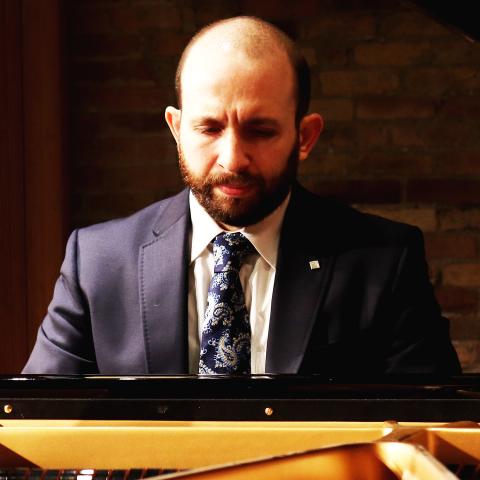Why Chamber Music Is Essential for Every Music Student—Even Soloists
Insights from MIC Chamber Music Program Director Dr. Daniel Baer

August 5th, 2025
Many students begin music lessons by focusing on solo repertoire, but even soloists benefit from chamber music playing. Whether you're learning music for personal enjoyment, preparing for conservatory auditions, or pursuing a professional career, chamber music experience is a powerful tool to gain performance experience, connect with other musicians, and develop essential lifelong skills.
We spoke with Dr. Daniel Baer, director of the Music Institute of Chicago’s chamber music program, to explore why chamber music experiences should be part of every student’s musical journey regardless of age, instrument, or goals.
Why Chamber Music Is Essential for Every Music Student—Even Soloists
How Chamber Music Improves Solo Performance
Even soloists benefit deeply from playing in small ensembles. Why? Because chamber music enhances the very skills soloists rely on: listening, phrasing, technique, and interpretation.
“Playing chamber music makes us more imaginative musicians when we play our solo music because we begin to hear in greater detail," Daniel says. "The inspiration that we find in one another encourages us to practice more!”
When students rehearse with others, they learn to listen attentively to every line, not just their own. This awareness carries over into solo playing, helping musicians hear and interpret their parts better and encourages creative problem-solving.
“Chamber music teaches us to listen in a deeper way," Daniel explains. "The more we can hear in our own playing, the deeper and more meaningful a performance becomes!”
Skills Gained Through Chamber Music
Chamber music complements solo practice by helping students grow through real-time musical interaction, teamwork, and shared creativity.
"We spend so much of our time alone in the practice room so that we can share our art with others," says Daniel. "Playing chamber music allows us to play music with our friends and family; we build a community of people creating art together."
Whether you're just starting lessons or already performing advanced repertoire, chamber music sharpens the core skills every musician needs:
- Listening and collaboration – Students must blend with others and respond to both visual and musical cues.
- Rhythm and timing – Playing in sync strengthens internal pulse and precision.
- Musicianship – Reacting to group dynamics deepens musical interpretation.
- Accountability and motivation – Group rehearsals encourage consistent practice and goal setting.
"We sharpen our listening and thinking about music," Daniel adds. "We’re exposed to different instruments, different composers, and different teachers all of which build us into better more secure artists."
In addition to strengthening musicianship, ensemble playing builds soft skills that apply far beyond the practice room:
- Teamwork – Collaboration and compromise are essential in small ensembles.
- Focus and responsibility – Each player is accountable for their part, fostering discipline.
- Confidence – Performing with peers eases performance anxiety and builds stage presence.
- Community – Chamber music fosters lasting friendships and shared purpose
When Should Students Start Playing Chamber Music?
Chamber music offers valuable benefits at every age and skill level, with opportunities for growth at each stage of a musician’s journey. Young beginners can sharpen their listening and ear-training skills, intermediate players can deepen their musicianship, and adults or casual learners can enjoy the sense of connection and community that comes from playing with others. Talk to your private lesson teacher about how chamber music might support your goals.
At the Music Institute of Chicago, our Chamber Music program welcomes youth (ages 8+) and adults who are intermediate or advanced players with strong sight-reading skills.
For adults seeking a more flexible or performance-focused experience, we also offer a Chamber Music Workshop for Adults designed specifically with adult learners in mind.
"It makes such a big difference to be able to make music with others, especially as more attention is given to an epidemic of adult loneliness," Daniel explains. "I’m excited that we’re able to offer a new program specifically designed for the needs of adult musicians looking for that community."
How Chamber Music Prepares Students for a Music Career
From audition requirements to professional networking, chamber music builds the skills and relationships that sustain a career.
As Daniel Baer explains, “For people hoping to pursue music professionally, chamber music is crucial. Building a network of musicians with whom you play and are friends opens countless opportunities to concertize, teach, and learn."
Chamber music develops real-world musical and professional skills, including:
- Stronger sight-reading
- Better time management and rehearsal etiquette
- Real-world collaboration and adaptability
- A supportive network of fellow musicians
Join Chamber Music at The Music institute of Chicago
Whether you're stepping into chamber music for the first time or sharpening your ensemble skills, MIC’s Chamber Music program offers the perfect blend of support and artistic growth. At the Music Institute of Chicago, you'll be welcomed into thoughtfully matched ensembles, guided by dedicated faculty, and enjoy regular performance opportunities and master classes.

